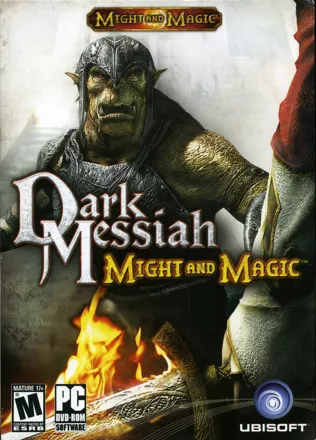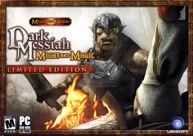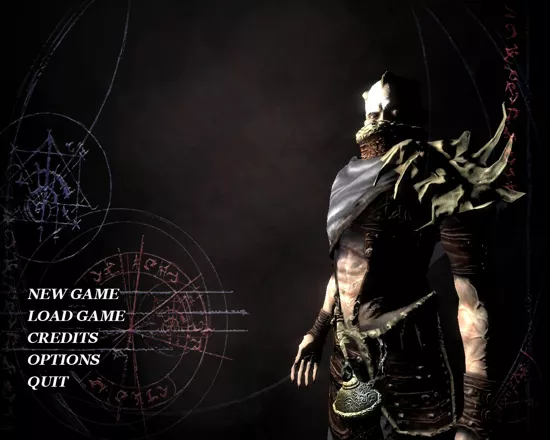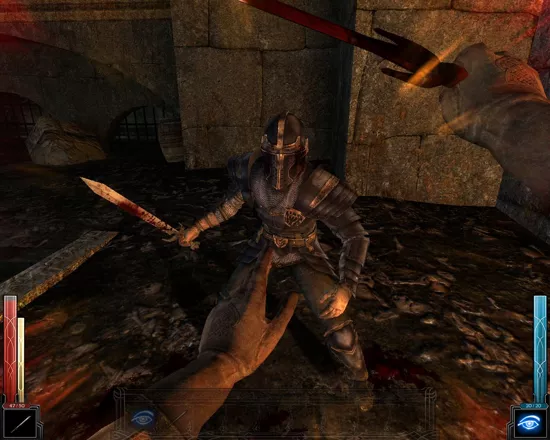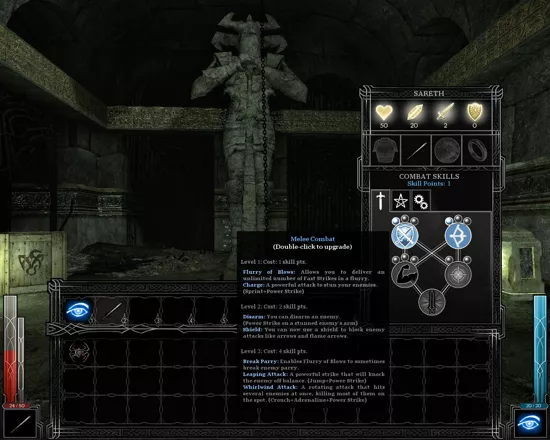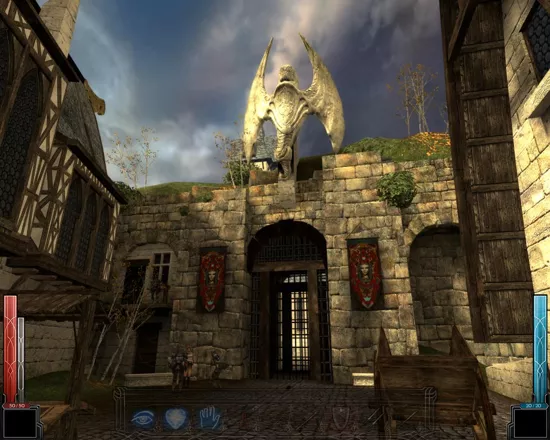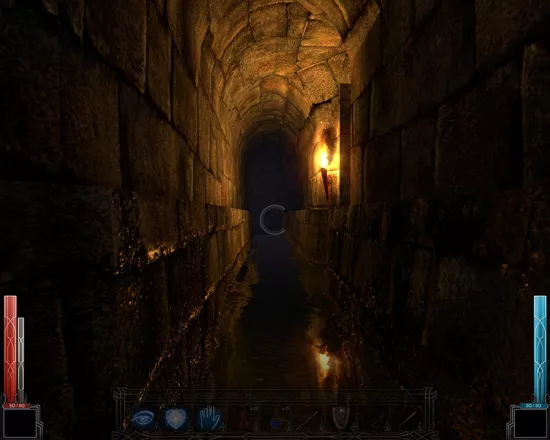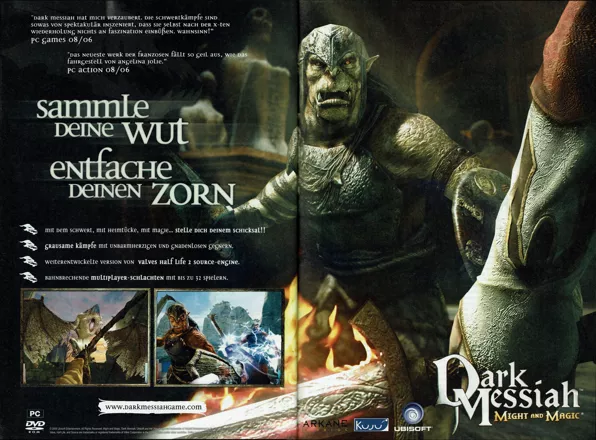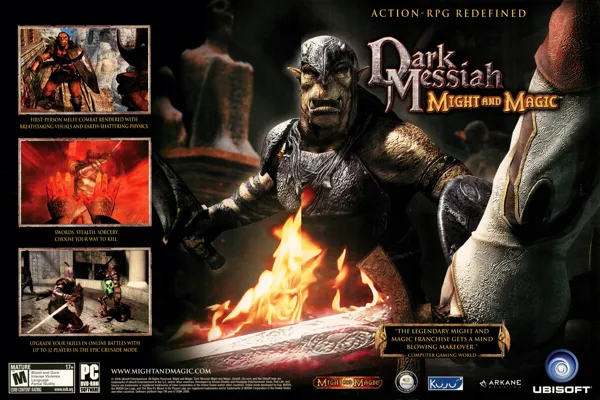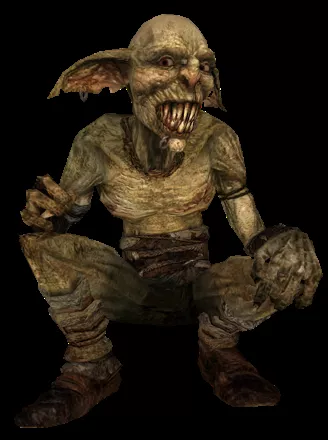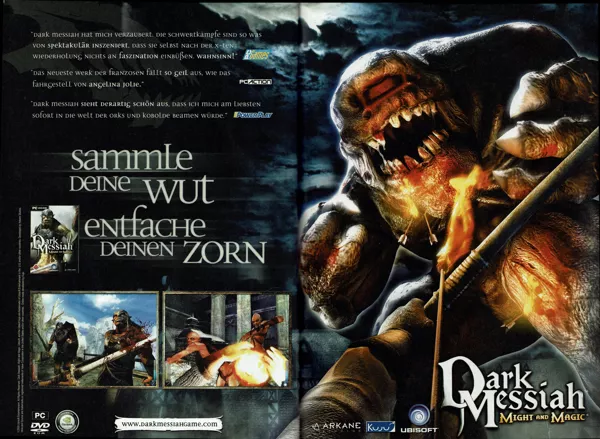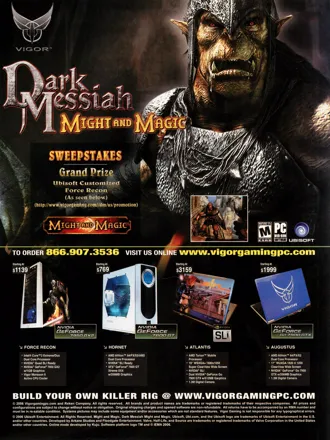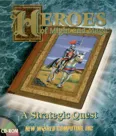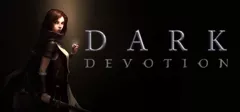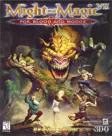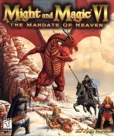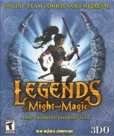Dark Messiah: Might and Magic
Description official descriptions
A long time ago an extreme powerful mage called the Seventh Dragon banished all demons from the world and paid with his death for this. But the prophecies tell that after a 1000 years, a Dark Messiah - half human, half demon - will return to the earth to destroy the barrier that stands between the worlds. Now twenty years ago, a Demon Lord successfully mates with Isabel, Queen of the Griffin Empire and all attempts of the Emperor to exorcist her fail (you can play this mission in Heroes of Might and Magic V) and the Dark Messiah is born. Also he doesn't know it yet, his goal is to obtain the Skull of the Seventh Dragon called Skull of Shadows from Skull Island, where it is guarded by the orcs and destroy the barrier between the worlds with it. The name of the Dark Messiah is Sareth and he's an mage apprentice. One day his master sends him to Stonehelm to help another mage retrieve the Skull. And so the Prophecy seems to become real. But it is yours to decide if you use the Skull, once you've obtained it, for good or for evil since you are playing Sareth.
Dark Messiah: Might and Magic is a first-person action game set in the medieval age so instead of guns you use swords, bows and magic to defeat your enemies. As you progress through the story you obtain skill points which you can invest in one of three skill trees called Combat, Magic and Stealth. How you skill Sareth directly influences the combat in the game. You can either play like an assassin and backstab your enemies to oblivion or make him a perfect sword-fighter who can use different combos to take out his enemies for example.
But you can also use your environment to make your kills. There're countless items you can lift up and throw at your enemy or you can light up your arrow on a campfire nearby to inflict more damage. You can also make good use of your foot and kick your enemies off cliffs or kick them into spikes that come out of the wall or use other traps that are scattered in the levels like bringing a statue to a fall.
The main innovation in Dark Messiah is the so-called Body Awareness System. This basically means that Sareth is a real part of the world like every other NPC. This makes not only the whole combat more intense because your whole body moves with every sword-swing you make but the NPCs can interact more directly with you. For example a Orc can take you by your neck and throw you through the room.
If you've already saved (or damned) the world you can turn to the multiplayer-mode. There you've access to five different character classes from the knight to the priestess. With each kill you make you earn experience points and increase in rank. Then you get skill points you can invest in your skill tree to get new talents or upgrade existing ones. This is most important in the Conquest game-mode in which you play various maps in a row and keep your level between all the way. In the Conquest-mode two teams (Humans and Undead) fight over the possession of the flags on a map. Once one team holds all flags, it wins and the next map is loaded. But there's also normal (Team-)Deathmatch available.
Spellings
- 魔法門黑暗彌賽亞中文版 - Traditional Chinese spelling
- 魔法门之黑暗弥赛亚 - Simplified Chinese spelling
- 다크 메시아 오브 마이트 앤 매직 - Korean spelling
Groups +
- 3D Engine: Source
- Fantasy creatures: Orcs
- Fantasy creatures: Succubi or incubi
- Fantasy creatures: Trolls
- Gameplay feature: Drowning
- Gameplay feature: Equipment quick slots
- Gameplay feature: Multiple endings
- Middleware: Bink Video
- Might and Magic universe
- Software Pyramide releases
- Sound engine: AIL/Miles Sound System
- Technology: amBX
- Ubisoft eXclusive releases
- White Label releases
Screenshots
Promos
Videos
See any errors or missing info for this game?
You can submit a correction, contribute trivia, add to a game group, add a related site or alternate title.
Credits (Windows version)
490 People (421 developers, 69 thanks) · View all
| President | |
| CEO | |
| Executive Director, Worldwide Studios | |
| Chief Creative Officer | |
| EMEA Director | |
| USA Director | |
| Director Third Party Development | |
| Executive Producer | |
| Producer | |
| Associate Producer | |
| Assistant Producers | |
| Business Development | |
| Marketing Game Manager | |
| Marketing Coordinator | |
| Special Thanks | |
| Creative Director | |
| Producer | |
| Lead Level Designer | |
| Lead Programmer | |
| Art Director | |
| Art Technical Expert | |
| Lead Animator | |
| Executive Producer | |
| Studio Manager | |
| [ full credits ] | |
Reviews
Critics
Average score: 76% (based on 50 ratings)
Players
Average score: 3.8 out of 5 (based on 68 ratings with 5 reviews)
The Good
To be honest, I always took a much greater interest in the multiplayer portion of Dark Messiah rather than its single player brethren. Developed by Kuju Entertainment, the company responsible for helping develop the EyeToy games for the PS2, the multiplayer mode for Call of Duty: Finest Hour, and Battalion Wars for the Nintendo Gamecube, the multiplayer mode of Dark Messiah encompasses a unique style of gameplay in a fantasy setting. The game splits between 2 factions, the Humans and the Undead. Each faction allows 5 playable classes, the Assassin, the Priestess, the Mage, the Archer, and the Warrior. The only difference between the Humans and the Undead is their physical appearance; otherwise, they are essentially the same.
The Bad
Despite some slight conflicts of class balance, the multiplayer portion of the game leads as an excellent and worthy contender of popular multiplayer first person shooters. To begin with, the Assassin is a very fast paced and fun-to-play class. In fact, all classes are extremely fun to play, and it will only get better as Kuju decides what should be done to help make the game even better. (And they do, their commitment to the Open Beta was extraordinary, as far as updates and forum responses go). The Warrior is a tanker lover’s dream, being able to negate any spells and absorbing the most damage with its Reinforced Armor. Surprisingly, the Warrior’s attacks are powerful as well. The Priestess is most likely the main concern of many balance critics. With her instant self-heal ability and an armor buff that lowers any kind of damage, the Priestess can take on any class and win. I haven’t even mentioned the insane range of her Corrupt ability and the Bramble spell that slows ALL players to a crawl. Kuju Entertainment obviously decided that Priestesses should do more than just supporting other classes. The Mage is insanely powerful as well, but only in late levels. Finally, the Archer is a class that rewards those with practice; arrows not only take time to reach the target, but they also arc as well. However, 1 fully charged shot deals 56 damage; 2 shots will kill the player.
The Bottom Line
In conclusion, the multiplayer portion of Dark Messiah is anything but the norm. It features a retrospective view of the modern first person shooter with 5 totally different playable classes. The game delivers tons of different tactical strategies, and will only get better as Kuju Entertainment continues to please its fans with updates and additions to the game.
Windows · by gi han (2) · 2006
The Good
Fantasy themed FPS's are rare, much too rare for my taste. Heretic, Hexen, and Hexen II ("The Serpent Riders Trilogy" as I refer to them) were fantastic, clever, creative games that were a nice break from the more common FPS themes. At least, they were for their time. Yet still, to this day, the overwhelming majority of this genre consists of military, stealth, sci-fi, and horror. For some reason, fantasy remains an elusive theme.
Enter Dark Messiah of Might & Magic, the first fantasy-themed game I've seen in quite some time, about the adventures of one mage apprentice named Sareth (I'll leave it at that). The first thing you'll notice is the beauty of the game. The Source engine, while not the most technically advanced, especially now that it's nearly four years old, spins us a web of a haunting, sinister atmosphere that could compete with the Thief series. Outdoor areas are appropriately bright and beautiful, while darker environs such as crypts and abandoned temples are genuinely frightening and can cause a sense of paranoia.
The weapons and other inventory items are pretty standard fare for a fantasy game: daggers, swords, shields, magical staffs, bows, as well as the expected array of defensive/offensive spells and armor. The game is designed with the idea that the player can choose which type of Sareth character to play during the course of the game, be it magic, combat, or stealth based...essentially an RPG-lite design without rolling the dice.
Like Half-Life 2, the player can also put their surroundings to use during combat with enemies. Speaking of enemies, if you've ever played a typical fantasy game, then you'll know what to expect; spiders, undead, orcs, and evil wizards. The most fun part of the game is, obviously, the combat. I must say it was highly, highly entertaining sneaking up behind a necromancer and slitting his throat, kicking goblins off cliffs, impaling evil knights onto spikes, setting zombies on fire, and electrocuting spiders. I also can't tell you the pleasure of cutting the rope on a chandelier only to have it the crush five knights who were previously charging at me swords waving.
Unfortunately, well...
The Bad
...the combat is about the entirety of the game's value. And as fun as it may have been, it wasn't enough after a while. In fact, the combat environments seemed as though they were laid out on a snap-to grid! No matter what locale your traversing, be it a crypt, a castle, a temple, or a courtyard, there were always carefully placed spikes, fire beds, stacks of barrels on destructible racks, and a/an [insert pendulous heavy thing here] suspended on the ceiling only held there by a weak rope, and your friendly neighborhood bottomless chasm. Seeing as how the Source engine is so well known for its physics capability and its ability to render many movable objects at once, it surprises me that the developers didn't invent more creative ways to utilize the environment. The above options are about all you have.
Speaking of combat, the game does indeed heavily favor the Fighter over the Mage or Assassin. While there are a wealth of spells and some decent magical weapons (staffs of course), most of the enemies in the game don't appear to be designed to be damaged much by them. While shooting fireballs at a knight will eventually kill him, it's simply no comparison to slicing and dicing away with a pair of high-damage daggers or a sword. Still, the stealth player is yet again the most neglected. Sure, there are missions/areas with plenty of shadows and opponents ripe for some stealth play, but most of the game just doesn't call for that because it isn't designed for it. The game is simply too linear for its own good. Yes, I do realize that despite the absence of guns this is an FPS, and most FPS's are linear, but the level design still could have been more open-ended and not so water-tight.
As for the game's plot, well... The FPS genre is generally not known for great storytelling;.that isn't to say an FPS cannot have a solid plot (see Half-Life or Thief), but they are far and few between. Dark Messiah is not one of those few I'm sorry to say. The plot is harmless, generic fantasy: find the Magical Object and destroy the Evil Power because it is Your Destiny. But seeing as how the gameplay hours for this title are quite short (8 to 10 hours is a rough estimate), there just is not enough time for Arkane Studios to give us their own personal Silmarillion.
All in all, the game feels extremely underdeveloped. There were so many elements of this game that could have made it a great title, but sadly fate did not smile upon this game. I'm unsure as to whether or not Arkane was being hen-pecked by Ubisoft to get this game out, but it certainly seems that way.
The Bottom Line
To put it succinctly, if you want a gigantic fantasy world ripe for exploration, more weapons, spells, enemies, styles of play than you can count, and an epic fantasy plot, then I would direct you to the nearest Elder Scrolls title. But if you're looking for mindless fun... In spite of all the flaws I rambled about, the atmosphere is fairly engaging, the combat is entertaining, and Dark Messiah is a perfect game for playing in 30 minute or one hour bursts. Now that it can be had for less than $20, pick yourself up a copy and kick some goblins off cliffs!
Windows · by HandofShadow (49) · 2008
Tries so Hard to Be Xtreme, Fails. At Everything Else Too.
The Good
There were times when the game’s graphics didn’t offend me. The Spiders the giant trolls and of course the Dragon. The Spider lair itself scared me pretty well, and when hoards of arachnids are tumbling down on you, you’ll appreciate the game. That’s about it.
Aside from that, the melee combat was entertaining for an hour, maybe. I enjoyed kicking people into spikes and whatnot, but only for that same first hour. Um, aside from that there isn’t much else to say. The water looked pretty good, I guess?
The Bad
There honestly isn’t much that I loved about Dark Messiah of Might and Magic. The acting, dialogue and story all made me cringe. Aside from the ludicrous and sexist portrayal of the demon temptress who you meet at the beginning of the game (trust me, you won’t believe how badly this character is implemented) the rest of the characters are more stereotyped than those of a bad Japanese RPG. The villains are always cackling and laughing up their sleeves, the good female character is there solely as a romantic interest, “hot” body and foil to the sexy demon temptress, and all other characters are secondary. I actually thought that the plot was interesting, but it was so muddled and badly organized that I quickly lost interest.
The combat, as mentioned before, gets old fast. You’ll quickly realize that you have to block and attack in a very regular fashion. Bows, magic and other supposedly cool abilities are largely unpleasant to use. Enemies are mundane when confronted as a fighter, and annoying when confronted as a spell caster or thief.
Returning to the presentation of the game, I liked some of the landscapes a bit, but the problem was how the Source engine was used. I know that this engine can create some amazing vistas, so why was it that every single wide-open area looked awful. Every other texture was so blurry it was like they were underwater. This applied to creatures and items too. The worst was when I realized that my sword was basically a grey stick that got a bit red when I stabbed people. The darker areas look pretty bad, and all of the enemies animate horribly. The later zombie encounters are maddening, as is the fact that you don’t get really good items until way too late in the game.
Multiplayer is a mess, and there aren’t really enough people playing to make you care about it.
The Bottom Line
I really wanted to like this game. It takes place in one of my favorite universes, and it boasted a visceral, melee-oriented look and feel. Sadly, when you have a melee-oriented game where the melee is awful, you might have a problem on your hands. This game annoys and frustrates at every turn, and its portrayal of women is childish and offensive. A few fun creature encounters and some clever set pieces can’t save this game from its own awful design. It doesn’t matter if you’re looking for a melee FPS, an action RPG, or any other swords and sorcery epic. Look somewhere else.
Windows · by Tom Cross (28) · 2008
Trivia
Development
This is the second Might & Magic since Ubisoft acquired the license to the universe. The singleplayer part of Dark Messiah was developed by Arkane Studios. Kuju Entertainment Ltd. was responsible for the multiplayer mode.
German version
In the German retail version some blood effects were removed: when executing an enemy which lies on the ground, in cutscenes and during a special move against the enemy's stomach in adrenaline mode. Also removed were cut off limbs, enemies die instantly instead of slowly burning to death when using fire, and interactions with corpses (using weapons, burning, throwing). A detailed list of changes can be found on schnittberichte.com (German). The German version on Steam is uncut.
Setting
Dark Messiah: Might and Magic takes place in Ashan, the Might & Magic world created by Ubisoft. It replaced the old Might & Magic universe, which consisted of many different worlds and was used by New World Computing until its dissolution. According to Ubisoft, it was done because the old continuity became hard to manage, and to avoid confusing newcomers.
In contrast with the old universe, which incorporated science fiction elements, Ashan is a pure fantasy world. The first game it was featured in was Heroes of Might and Magic V.
Awards
- GameStar (Germany)
- February 01, 2007 - Best PC Action Game in 2006
- PC Powerplay (Germany)
- Issue 02/2007 – #2 Best Action Game in 2006
- Issue 03/2007 – Best Action Game in 2006 (Readers' Vote)
Information also contributed by Mark Ennis.
Analytics
Upgrade to MobyPro to view research rankings!
Identifiers +
Contribute
Are you familiar with this game? Help document and preserve this entry in video game history! If your contribution is approved, you will earn points and be credited as a contributor.
Contributors to this Entry
Game added by Sicarius.
Additional contributors: Unicorn Lynx, Sciere, vedder, Paulus18950, lee jun ho, Patrick Bregger, Stuttgart.
Game added November 18, 2006. Last modified April 5, 2024.
